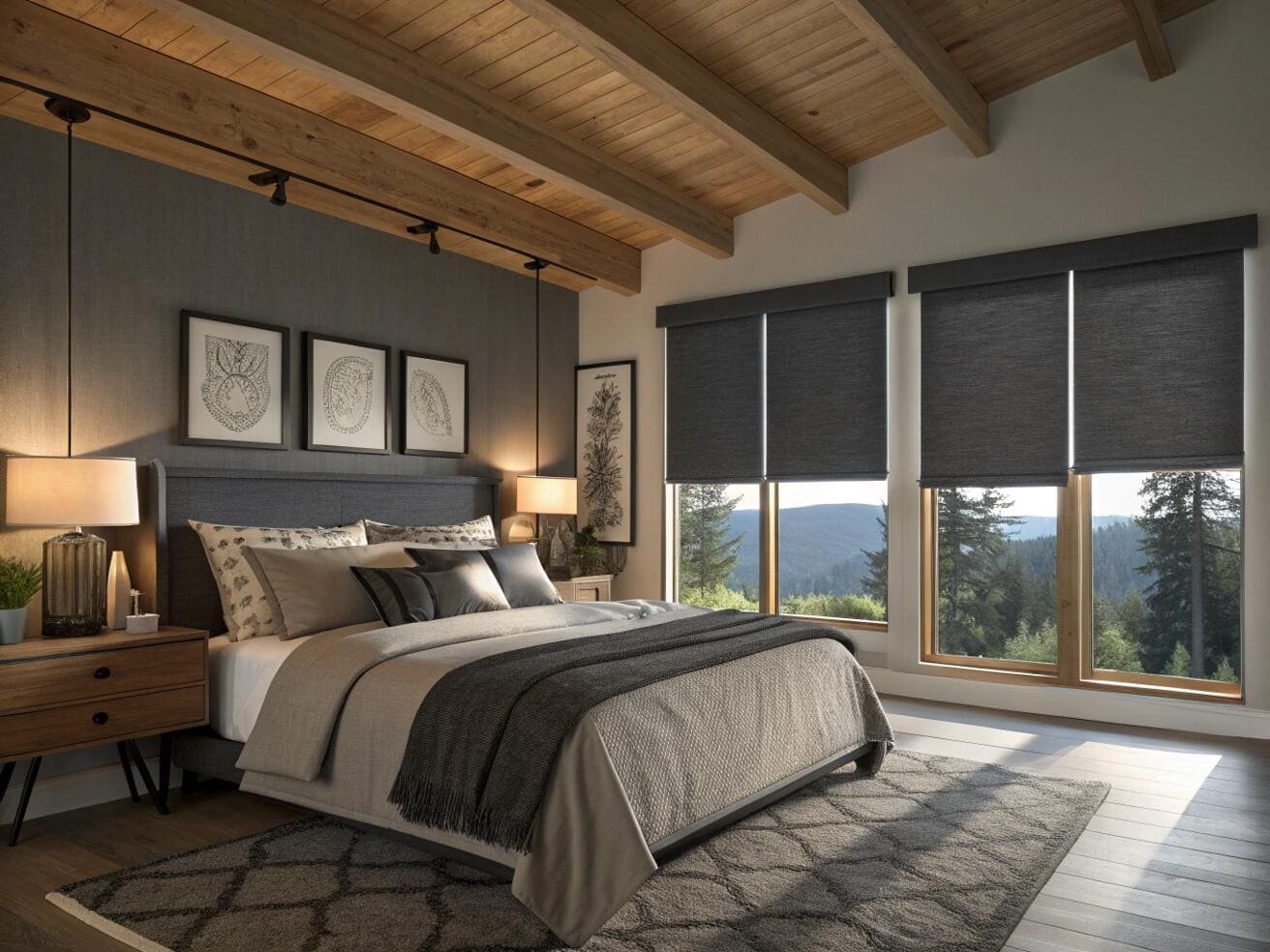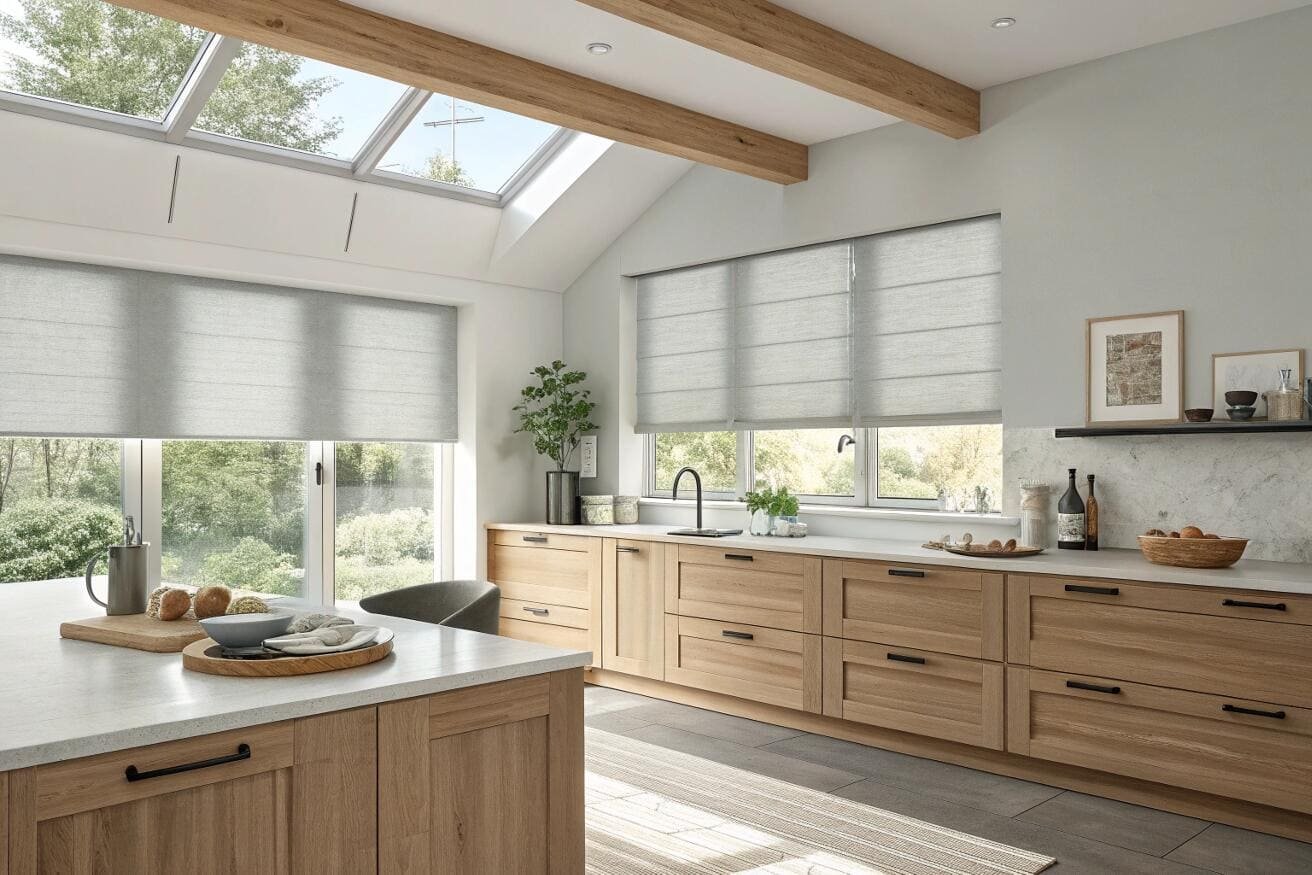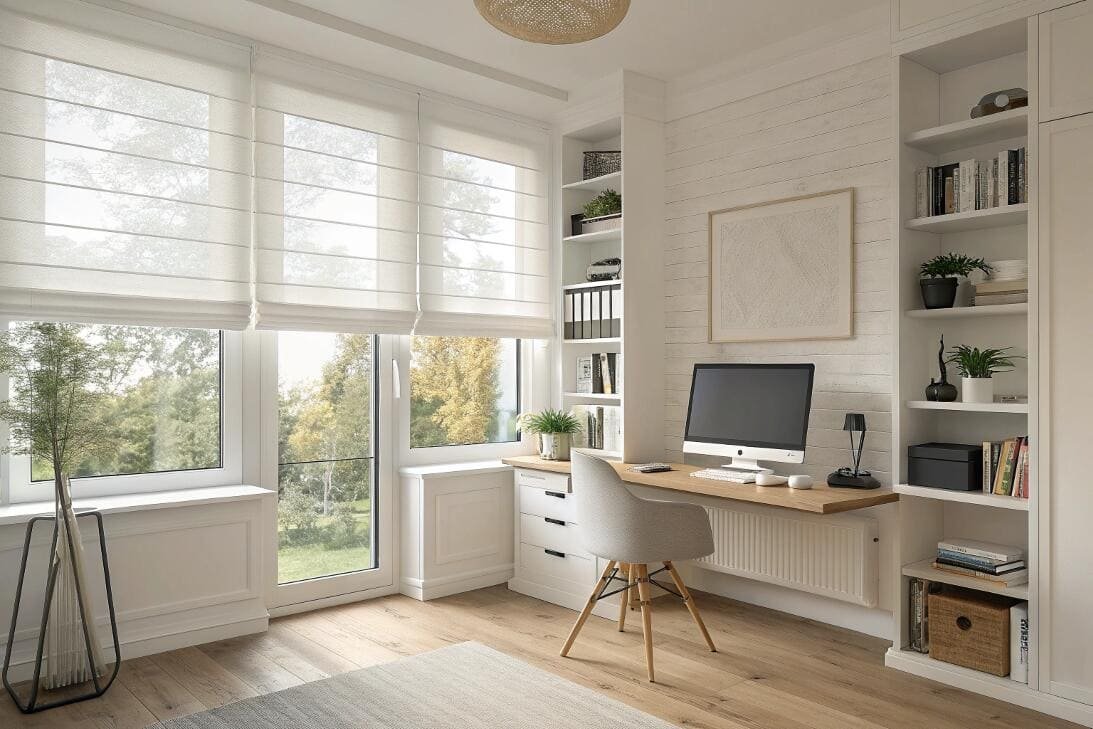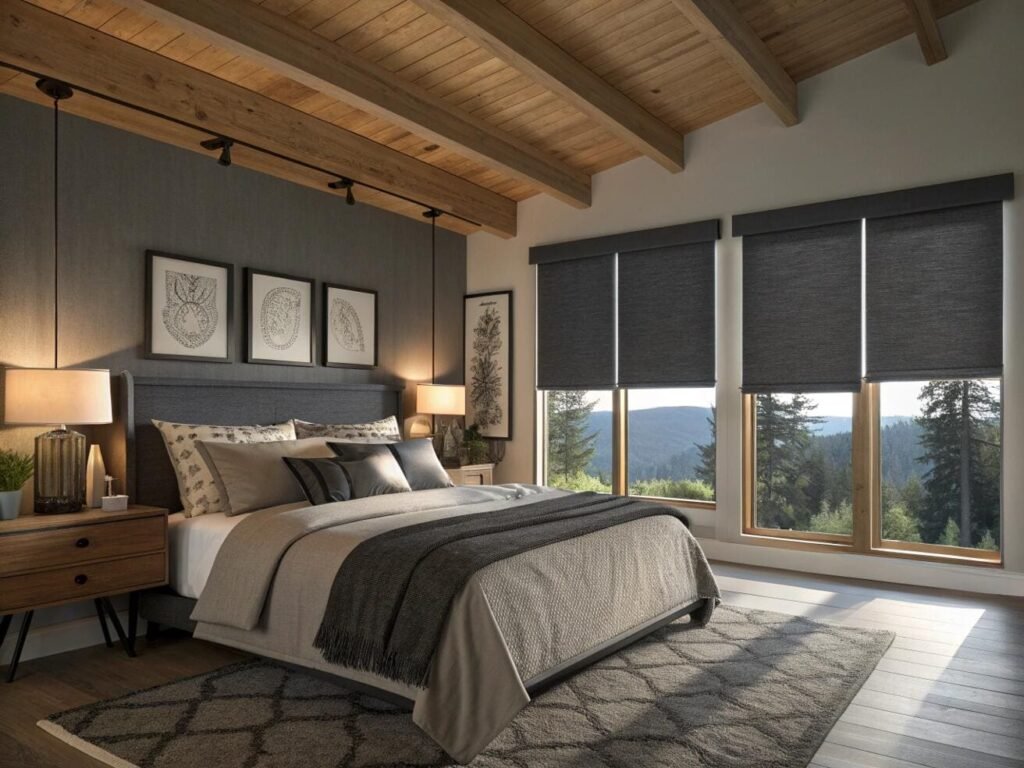You want a bright, welcoming room without suffering from harsh glare. But choosing between light filtering and blackout shades is confusing, and picking the wrong one feels like a permanent mistake.
Light filtering shades soften and diffuse incoming daylight, reducing glare while maintaining a bright atmosphere. Blackout shades1 use an opaque fabric to block nearly 100% of light, providing total darkness and privacy. The choice depends on the room's primary function and your privacy needs2.

After years of specifying window treatments for countless projects, I have learned one crucial thing. The real difference between light filtering and blackout shades isn’t just brightness—it’s about strategically balancing privacy, comfort, and energy efficiency3 across different living spaces. It's about matching the tool to the job.
What Are Light Filtering and Blackout Shades, Exactly?
The terms sound similar, and you worry you'll buy the wrong one and be stuck with it. How can you be sure you understand the fundamental difference before you make a decision?
The key difference lies in the fabric's construction. Light filtering shades4 use a woven material that allows some light to pass through, while blackout shades feature an opaque layer that blocks light completely.

Explore our full range of 👉 Roller Shades
When I walk clients through this choice, I always start with the fabric itself, because that's what determines the performance.
| Feature | Light Filtering Shades | Blackout Shades |
|---|---|---|
| Fabric Construction | Typically a single layer of woven polyester or a poly-blend fabric. The weave diffuses light, much like a lampshade. | Made with an opaque material. This is achieved either through a foam backing, a laminate layer, or multiple bonded layers of fabric. |
| Light Control | Reduces glare and softens harsh sunlight into a pleasant, ambient glow. You cannot achieve total darkness with these. | Blocks 95-99% of all incoming light, creating a "nighttime" effect even during the day. Ideal for sleep and home theaters. |
| Atmosphere | Creates a bright, airy, and open feeling in a room. It maintains a connection to the outdoors. | Creates a cozy, private, and controlled environment. The room is completely separated from outside light conditions. |
Understanding this basic difference in material is the first step to choosing the right shade for your specific needs.
How Do Light Filtering Shades Handle Glare and Heat?
You love the bright, natural light5 from your windows. But the intense glare on your screens and the afternoon heat buildup are becoming unbearable. Can a light filtering shade solve these problems?
Yes, they excel at blocking glare by diffusing harsh sunlight into soft, usable light. While they offer some heat reduction, they are not as effective as dedicated thermal or blackout shades for significant temperature control.

Explore our full range of 👉 Roman Shades
Light filtering shades are the perfect solution for managing daylight in common areas. They solve two very different problems in two different ways.
-
Glare Control: This is their primary strength. The woven fabric scatters the concentrated rays of the sun, turning a blinding glare into soft, even illumination. This is crucial for home office6s, living rooms, and any space where you use screens like TVs, computers, or tablets. Your room stays bright and cheerful, but you can actually see what you're doing without squinting or closing the blinds completely.
-
Heat Control: This is where performance varies. A light filtering shade will take the edge off the sun's heat, especially a lighter-colored fabric which will reflect more solar energy. However, since the fabric is not designed for insulation, it will not prevent significant heat gain in the summer or heat loss in the winter. Think of it as providing slight relief, not a powerful thermal barrier. For serious insulation, a blackout or cellular shade is the superior choice.
Light Filtering vs. Blackout: Which Is Best for Your Room and Privacy Needs?
You need absolute privacy in your bedroom at night, but you don't want to live in a dark cave during the day. How do you choose the right shade for each room's specific needs?
For common areas like living rooms and kitchens, light filtering shades are ideal for maintaining a bright atmosphere. For bedrooms, nurseries, and home theaters where total darkness and nighttime privacy are critical, blackout shades are the superior choice.

The most important question I ask clients is, "What are your privacy needs at night?" This often determines the right choice.
- Can You See Through Light Filtering Shades at Night?
Yes. This is a critical point that is often misunderstood. During the day, you can't see into a home through a light filtering shade. But at night, when your lights are on inside and it's dark outside, the effect reverses. People outside can see silhouettes and shapes inside. This is sometimes called the "fishbowl effect."
For true 24/7 privacy, blackout shades are the only option. With this in mind, here is my room-by-room guide7:
| Room | Recommended Shade | Why It Works Best |
|---|---|---|
| Living Room / Kitchen | Light Filtering | These are daytime spaces. You want to maximize natural light, create a welcoming vibe, and cut glare without losing the open feel. |
| Bedroom / Nursery | Blackout | These rooms are for rest. Blocking light promotes better sleep by supporting melatonin production. They also guarantee 100% privacy at night. |
| Home Office | It Depends (or Dual Shades) | If your work involves video calls, a blackout shade can control backlighting perfectly. If you just want a pleasant workspace, light filtering is better. |
| Bathroom | Blackout or Faux-Wood | Privacy is non-negotiable here. A moisture-resistant blackout roller shade8 or faux-wood blinds are excellent choices. |
For the ultimate flexibility, a dual shade system9—which combines a light-filtering shade and a blackout shade on one bracket—offers both options in a single window.
Conclusion
The best choice is not about which shade is better overall, but which is right for the room. Balance brightness and privacy by using light filtering for living areas and blackout for sleeping spaces.
Partner with VelaBlinds for Your Next Project
Smart window treatments shouldn't be complicated. After working with 500+ distributors and contractors worldwide, I've streamlined the process to get you quality products, competitive pricing, and reliable support - every time.
Why project professionals choose VelaBlinds:
- ✅ Fast, Accurate Quotes - Detailed specs and pricing within 24 hours
- ✅ Transparent Pricing - No hidden fees, volume discounts clearly outlined
- ✅ Quality Assurance - Direct partnerships with certified OEM manufacturers
- ✅ Project Support - Dedicated account manager from quote to delivery
Start your next project:
📧 Quick Quote: Send your requirements to info@velablinds.com
📱 Direct Contact: WhatsApp +86 137 2012 8317
🌐 Browse Solutions: https://velablinds.com/
📁 Product Resources: Access spec sheets, catalogs & project files
Paul Chen, Founder
"I built VelaBlinds to solve the real challenges I faced as a project buyer - long lead times, unclear specs, and unreliable suppliers. Let's discuss how we can power your projects with smarter blinds."
Serving distributors and contractors across North America, Europe, and Australia since 2018.
-
Discover how blackout shades can enhance your sleep environment by blocking out light completely. ↩
-
Learn about window treatments that effectively address privacy concerns in different rooms. ↩
-
Understand how the right window treatments can improve your home's energy efficiency. ↩
-
Explore the advantages of light filtering shades for managing glare and maintaining brightness in your home. ↩
-
Discover tips for enhancing natural light while maintaining comfort and privacy. ↩
-
Find out which window treatments work best for creating a productive home office environment. ↩
-
Get insights on selecting the right window treatments for each room in your home. ↩
-
Learn about moisture-resistant blackout shades that are perfect for bathrooms and humid areas. ↩
-
Explore the benefits of a dual shade system that combines light filtering and blackout options. ↩




